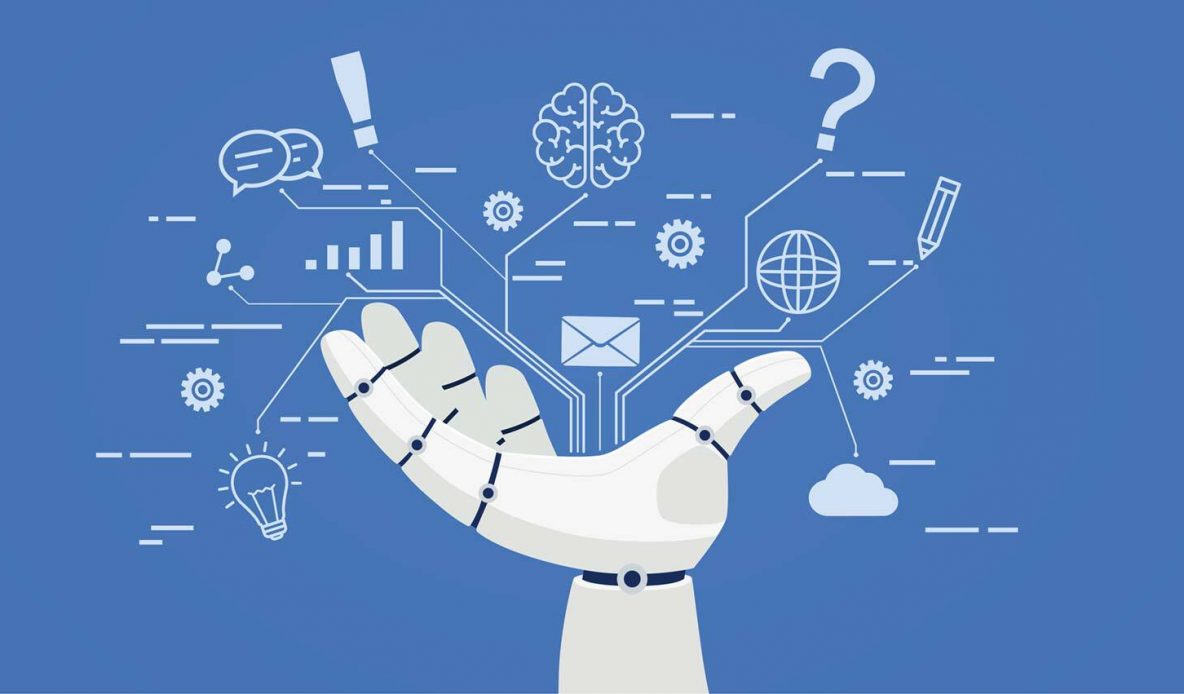
Implementing AI in Content Marketing: 6 Key Factors to Consider
All brands can benefit from automation and analytical tools enabled by artificial intelligence. In fact, more and more companies harvest the benefits of implementing AI in their marketing efforts. As this chart suggests, there is a 27% increase in the implementation of AI and machine learning technologies for marketing purposes.
If you, too, are planning to employ AI in marketing, and specifically in content marketing, this article is a great place to start. After you’re finished reading, you’ll have a clear picture of what AI is. Also, we’ll discuss the key six factors you should consider when implementing AI in your content marketing strategy.
What is Artificial Intelligence?
What is the first thing that comes to your mind when you hear someone say ‘artificial intelligence’? For some of us, AI is still associated with evil machines taking over the world in the post-apocalyptic future. However, in real life, this stereotype is far away from being true (at least yet).
Artificial intelligence refers to the computer’s ability to emulate human intelligence processes through automation and learning. Many AI-powered computers are already among us, assisting our day-to-day lives. From Google predictive searches to Siri and Alexa, a wide spectrum of computers and applications use AI to make our lives easier.
As the technology advances, AI-powered computers are now able to perform the following:
-
Read communications (including news articles, books, emails, legal documentation, etc.) and report back.
-
Analyze visual data and make decisions about what they ‘see’.
-
Analyze audio information.
-
Analyze and recreate human verbal (languages) and non-verbal (emotions from faces and speech) communications.
-
Analyze large databases and identify complex patterns.
Besides, AI is now smart enough to beat 75% of Americans in the visual intelligence test. Isn’t this impressive?
As the AI technology evolves, and can now understand our emotions and beat us at tests, it’s paramount for marketers to learn how they can implement AI to create well-performing campaigns.
To assist you in crafting your AI-centered content marketing strategy, we’ve gathered the top six factors you should consider.
1. Topic Mining
Besides analyzing human emotions and visual information, AI-based algorithms can predict the audience’s reaction to particular topics. You can use these data for understanding which topics will drive better engagement and more interest.
Also, AI-based algorithms are capable of researching and analyzing article names, content ideas, and relevant keywords. These algorithms use vectorization to transform words into numbers. Then, they analyze the mathematical relationship among the numbers to identify how similar the words are.
This form of AI’s deep learning capability can be helpful if you’re looking for content inspiration. This factor is particularly helpful if your website has a rich blog section that requires regular updates. Also, writing companies, like articles or college essay writing services, will find this feature useful.
You can use all of these data to craft compelling content pieces that your readers will find interesting and helpful.
2. Content Generation
Many experts predict that artificial intelligence will soon replace human content writers. In the meantime, short-form content creation is already possible with AI-powered tools.
AI-powered software uses the natural language generation (NLG) technology to analyze and understand human speech. When it comes to creating content, AI uses the same technology to convert computerized data into logical narratives.
You’ll be surprised to learn that many well-known media organizations, including Reuters, Washington Post, The New York Times, and Associated Press, are already using “robot reporters” to cover the news. For example, Washington Post’s Heliograf, an AI-powered automated storytelling technology, does a great job covering D.C. area high school football games. This way, Heliograf allows in-house journalists to cover bigger games while keeping the local community of fans informed.
3. Content Accuracy
Content accuracy is another factor you should consider when implementing artificial intelligence in your content marketing. If your business model requires creating huge amounts of content, keeping track of accuracy becomes challenging. This is when AI-powered content checking and proofreading tools come into place.
You can use artificial intelligence to ensure all of your content is accurate and grammatically correct. Additionally, AI-powered tools can be used to identify whether your copy’s tone of voice and emotion match your target audience or not.
4. Personalization
Many marketers put a lot of effort into creating personalized content suited to the needs of each customer. The good news is that personalization becomes much easier with artificial intelligence.
Studies show that personalization is one of the most common applications of AI in marketing. Studies suggest that content personalization and predictive analysis are the two areas chief marketing officers prioritize AI spending.
You can use AI to track and monitor user behavior and preferences. AI-powered algorithms can analyze customer data and translate the key findings into consumer behavior reports. Then, you can use these reports to create more personalized content pieces.
5. Custom News Feed Generation
Major social media platforms, like Facebook, Instagram, and Twitter, use AI-powered algorithms to customize users’ news feed concerning their preferences and interests. You can harvest the benefits of this technology to improve your content marketing game. Let me explain how.
The aforementioned social media networks use technology that analyze thousands of variables to determine which posts a user will like, share, comment, or hide. Additionally, AI-powered algorithms provide social media networks with relevancy scores helpful in determining which ads users may be interested in.
As a content marketer, you can use all of this information to identify which content your audience will better engage with. By understanding which ads your audience members are more likely to click, you can craft more targeted social media ads.
6. Competitor Analysis
Competitor analysis is the final factor closing our list. Any brand can benefit from using AI to run predictive time-series forecasting. This is especially relevant if you’re at the beginning of starting an online business. This type of data analysis allows you to research your brand’s searches vs. your competitors.
This will give you a competitive advantage as you’ll be able to build your content strategy regarding your competitors’ strengths and weaknesses.
Final Thoughts
The power of AI technology is reshaping the content marketing landscape for the better. No matter how you decide to implement artificial technology in your content efforts, I encourage you to educate yourself on the role of AI in marketing.
The biggest takeaway can be summarized in one sentence. Using an AI-powered suite of tools allows you to access the analytics you need to create more targeted and compelling content. Now, as you’ve learned everything you need about AI, it’s time to implement it into your content marketing strategy!


